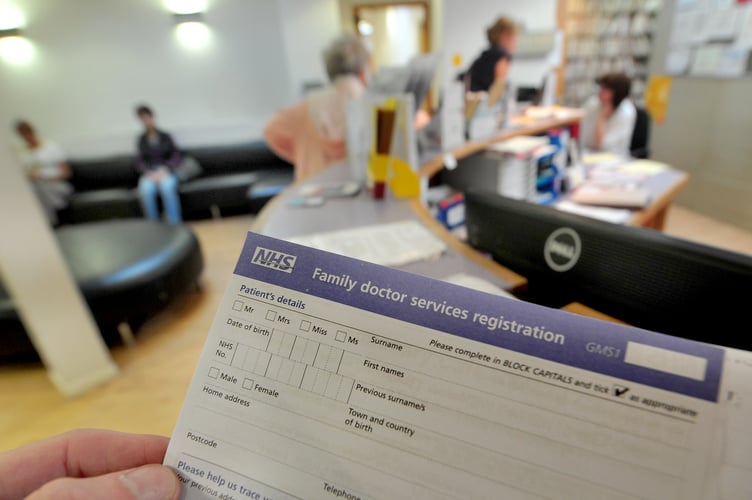There were more GPs working in Bath and north east Somerset, Swindon and Wiltshire this year, as new figures show the Government still failed to meet its recruitment target.
The Royal College of GPs warned “we are losing GPs faster than we are training new ones” and called on political parties to make further efforts to increase and retain the GP workforce.
Figures from the House of Commons Library based on NHS Digital data show 588 full-time-equivalent GPs were practising in the former NHS Bath and North East Somerset, Swindon and Wiltshire CCG area as of April. Of them, 450 were fully qualified, while the rest were still in training.
This was more than the same time the previous year, when 576 GPs were working in the area, and up on the levels in March 2019, when there were 557.
The number of full-time equivalent GPs across England saw an increase of 2.4% since April 2023, with 37,237 as per the latest figures. While this was also 2,711 more than in March five years ago, it came short of the Conservatives’ 2019 manifesto pledge to recruit 6,000 more GPs by 2025.
The increase was mainly driven by GP practices seeing more trainees. In spring, 9,631 were in training compared to 6,040 five years ago, while the workforce lost 880 fully qualified practitioners during this period.
Professor Kamila Hawthorne, chair of the Royal College of GPs, said GPs delivered 25% more appointments last month than in April 2019, but “we can’t keep doing more with less”.
“Patients are bearing the brunt of years of failures in funding and workforce planning,” she said.
In Bath and north east Somerset, Swindon and Wiltshire, each GP was responsible for around 1,709 patients in April – down from 1,726 last year. Across the country, each GP had an average of 1,729 patients.
Prof Hawthorne added: “Now that the General Election is just a few weeks away, we’re hearing promises from political parties about improving access to general practice services – but this can only be done with investment to boost and protect the GP workforce.
“Right now, we simply don’t have enough GPs - we are losing GPs faster than we are training new ones.
“We need all the major political parties to commit to significant investment and further efforts to increase and retain the GP workforce, to ensure general practice is fit for the future. If general practice fails, the NHS fails.”
Commenting on the figures last month, the Liberal Democrats’ leader, Sir Ed Davey, said the Conservative Party had “brought the NHS to its knees” during its time in Government, and had “decimated local health services”.
The party pledged to recruit 8,000 more GPs if elected, putting the policy at “the heart” of its campaign.
Sir Ed added the party would give people a legal right to see a GP in a week or 24 hours “if in urgent need, so people aren’t ever left struggling to get an appointment”.
The Conservatives are planning to expand Pharmacy First, which was launched in England in January and allows patients to be treated for seven common conditions at their local pharmacy without the need for a GP appointment or prescription.
They believe the scheme, once fully scaled, will free up 20 million GP appointments in total.
Their plan also involves building 100 new GP surgeries and modernising 150 more, particularly in those areas experiencing new housing developments.
Health Secretary Victoria Atkins has been promoting the Conservatives’ bid to boost community care, insisting it is part of reforms to make the NHS “faster, simpler and fairer”.



